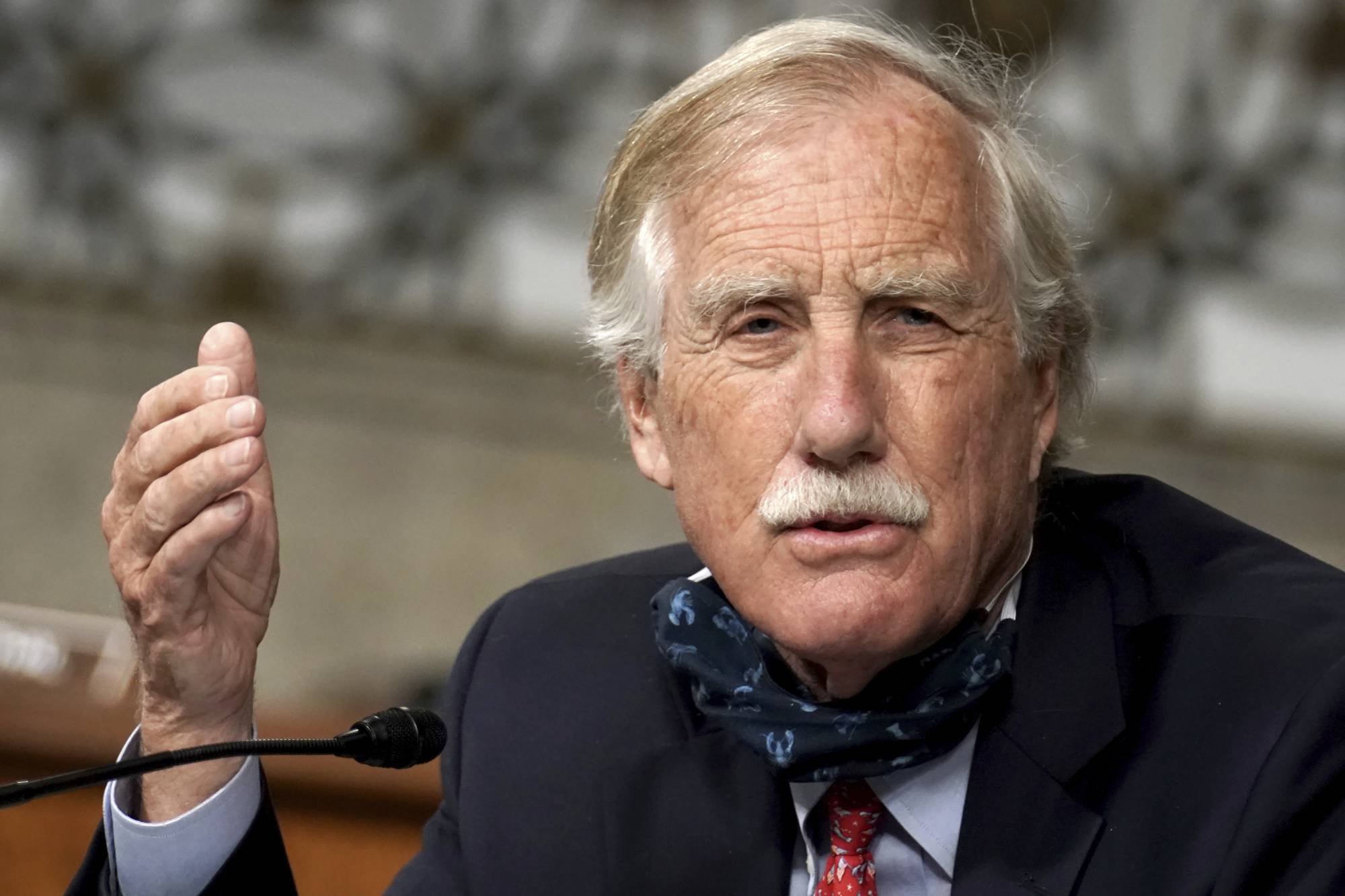For federal employees, 3 items to watch in the bipartisan infrastructure bill
As the House sets new deadlines to vote on the bipartisan infrastructure bill by the end of September, here are several provisions that might impact federal...
After coming back into town to hammer out the details, the House appears set to vote on the bipartisan infrastructure bill before the end of September.
The Infrastructure Investment and Jobs Act cleared the Senate with a 69-30 vote earlier this month.
It isn’t expected to change much as the House takes up the bipartisan bill, meaning federal employee groups are already counting their wins and losses as they review the legislation and prepare for changes that may eventually become law.
Here are a few key highlights from the bipartisan infrastructure bill that may impact federal employees and their agencies.
More work for the IRS — again
The bill cancels a few COVID-19 relief programs that the IRS implemented in 2020 and expanded earlier this year, namely the employee retention credit program, which incentivized small businesses to keep workers on their rolls.
The program would end Sept. 30, giving the IRS little to no time to prepare and make complicated mid-year tax changes, supervisors and managers at the agency say.
“When there’s a mid-season tax change it’s always very complicated,” said Chad Hooper, executive director of the Professional Managers Association, which represents supervisors at the IRS. “It requires immediate reprogramming and immediate training, and you have to pull people off their work to give them this training.”
Considering Congress may pass the bipartisan infrastructure bill just days before the sunset date for these COVID-19 relief programs, the IRS won’t have much time to prepare new outreach materials to socialize these changes to taxpayers, Hooper said. Impacted taxpayers and small business owners will likely have questions about the changes, and they’ll turn to the IRS to field them.
Customer service at the agency, however, has reached a historic low point. Just 7% of callers got through to an IRS representative during the last filing season, according to the National Taxpayer Advocate’s June report. The agency received more than 167 million calls during the 2021 filing season, a 294% increase over 2018 levels.
On one hand, the IRS is accustomed to mid-year tax changes that require the agency to quickly adjust. But Hooper said the new responsibilities feel like a blow considering Congress did not include additional investments for the IRS, which were once part of the conversation as a way to partially offset infrastructure spending.
At one point the Biden administration called for a $80 billion investment in the agency over the next decade, which the IRS said would help bring in $700 billion in owed taxes.
Senators considered including a smaller IRS investment in the infrastructure bill but dropped it during negotiations.
“It feels like insult to injury to have taken away this historic investment in the IRS that is so sorely needed and then give the IRS these two very expansive assignments, which is to invest an entire way to tax digital assets and to rescind this credit,” Hooper said. “That will give us an immediate crunch on service and capacity, while we’re trying to plan for the upcoming fiscal year and while we’re trying to dig out from the last two filing seasons. Those assignments in the infrastructure bill come with zero dollars of funding.”
Planning for the upcoming filing season has already started, Hooper said. The IRS will start onboarding and training new temporary hires for the next filing season next month. In the past, the number of phone calls and inquiries coming into the agency died down in the fall, giving the IRS the bandwidth to ramp up up resources and capacity for the next year.
The potential for new responsibilities from the bipartisan infrastructure bill, the backlog of work from the previous two filing seasons and preparations for the 2022 season create a “perfect storm” for the IRS, Hooper said.
More salary and workforce changes for federal firefighters
The Senate-passed Bipartisan Infrastructure Investment and Jobs Act includes about $600 million for federal wildland firefighter salaries and other workforce initiatives.
The Interior and Agriculture Departments, for example, will use those funds to convert at least 1,000 seasonal workers to permanent members of the federal firefighter workforce.
The funds will also cover salary bumps for current wildland firefighters, but under specific circumstances. The bipartisan infrastructure bill directs Interior, USDA and the Office of Personnel Management to create a new wildland firefighter occupation series.
Under the new job series, positions located in a specified geographic region where it’s difficult to recruit and retain federal firefighter talent will be eligible for an annual salary increase of $20,000 or an amount worth 50% of base pay, whichever is less.
Current federal firefighters can opt into the new classification system or stay within their current job series, according to the Senate bill.
In addition, the proposal calls for the Interior and Agriculture secretaries to develop recommendations for minimizing environmental hazard exposures on the federal firefighter workforce, as well as addressing mental health and post-traumatic stress challenges on employees.
The Biden administration, which recently finalized pay raises bringing all federal firefighters up to $15 an hour, has said the effort to raise pay, improve employee health and safety programs and broadly increase the size of wildland workforce is a response to recent events exacerbated by climate change. Fire seasons have grown longer and more intense in recent years, and the job is no longer confined to a few months out of the year, Interior and USDA has said.
The National Federation of Federal Employees is urging the House to pass the bipartisan infrastructure as is, arguing the investments and the creation of a new occupational series will bring a much-needed transformation of the federal firefighting workforce into a permanent, year-round operation.
“These items are all necessary to the proper functioning and safety of our wildland firefighter workforce and we are eager to have them approved by Congress,” Randy Erwin, NFFE national president, said last week in a statement.
Cyber, cyber and more cyber
Cybersecurity provisions are everywhere in the bipartisan infrastructure bill.
Notably, the bill would set aside $21 million for the new Office of the National Cyber Director, which the White House could use through the end of fiscal 2022 to hire additional staff. The office is technically authorized but not appropriated, and it won’t be until Congress passes a budget for the next year.
The current fiscal year ends Sept. 30, and it’s unlikely Congress will get around to passing a full year’s budget with funding for the new cyber office by the deadline, making the one-time investment of $21 million especially important.
Recently-confirmed National Cyber Director Chris Inglis said the White House uncovered about $250,000 in contingency funds to hire a few other employees between now and the end of the fiscal year.
The bipartisan infrastructure bill also includes a $35 million investment in the Cybersecurity and Infrastructure Security Agency to help oversee the government’s cyber coordination activities.
The Department of Homeland Security’s Science and Technology Directorate would get $31.5 million for each of the next five years to fund cyber risk assessment and vulnerability testing research.
In addition, several agencies would have to update their strategic plans to reflect new cybersecurity priorities.
The Federal Highway Administration, for example, would have to designate one office to serve as a “cyber coordinator” of sorts for local transportation authorities. This office would be responsible for monitoring, alerting and advising authorities on cyber threats and implementing a framework from the National Institute of Standards and Technology.
The Environmental Protection Agency must create a prioritization framework for public water systems, describing potential cyber vulnerabilities that might exist and whether those systems have the capacity to mitigate them or respond should an incident occur.
The bill also establishes a new cyber response and recovery fund, worth $100 million over five years. Under the Senate proposal, the Homeland Security secretary could declare a breach of a public or private sector network as a “significant incident,” triggering direct support from CISA in the form of funding and other assistance.
Copyright © 2025 Federal News Network. All rights reserved. This website is not intended for users located within the European Economic Area.
Nicole Ogrysko is a reporter for Federal News Network focusing on the federal workforce and federal pay and benefits.
Follow @nogryskoWFED






